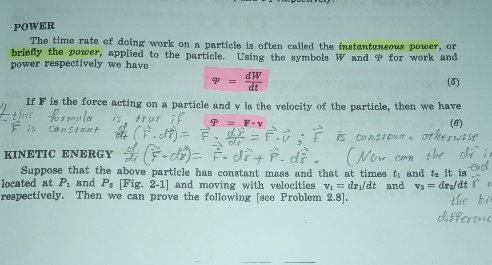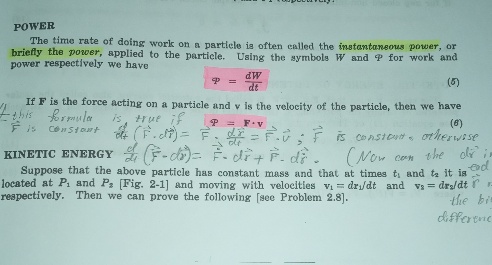The work $W_{\text{by }\vec{\bf F}}$ by some force $\vec {\bf F}$ over a path $C:\vec {\bf r}(t)$ is $$W_{\text{by }\vec{\bf F}}=\int_C \vec {\bf F} \cdot \mathrm d\vec {\bf r}.$$
Recall $\vec {\bf{v}} = \dfrac{\mathrm d \bf\vec {r}}{\mathrm dt}$, then, for some time interval from $t_0$ to $t$, the work is
$$W_{\text{by }\vec{\bf F}}=\int_{t_0}^{t} \vec {\bf F} \cdot \vec {\bf v}\ \mathrm dt'$$
where the $t'$ is used simply for notation (since we can't have the variable of integration as an integral bound).
We know power is the time derivative of work, therefore,
$$P=\dfrac{\mathrm d}{\mathrm dt}\int_{t_0}^{t} \vec {\bf F} \cdot \vec {\bf v}\ \mathrm dt',$$
and, by the fundamental theorem of calculus, we have that $$P=\vec {\bf F} \cdot \vec {\bf v}.$$


